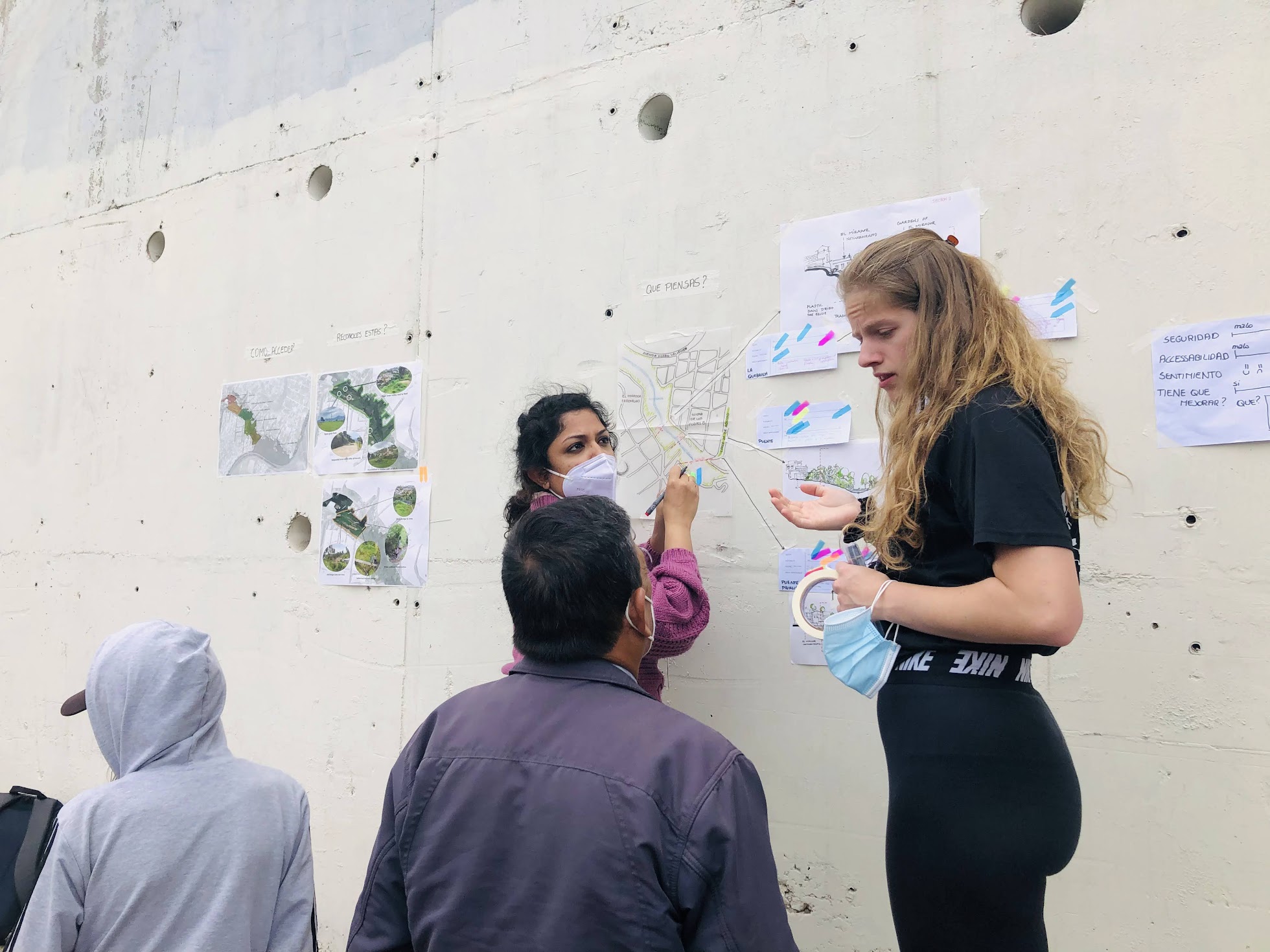Food sovereignty and urban orchards: community-led initiatives for sustainable food environments.
Barrio ‘La lucha de los pobres’, Quito. Ecuador. 13th to the 23rd of March 2022
We are happy to share the report Ashley Howard, research assistant and one of the MICSEA coordinadors wrote, in which he explains the work and methodology developed during the workshop in Quito.
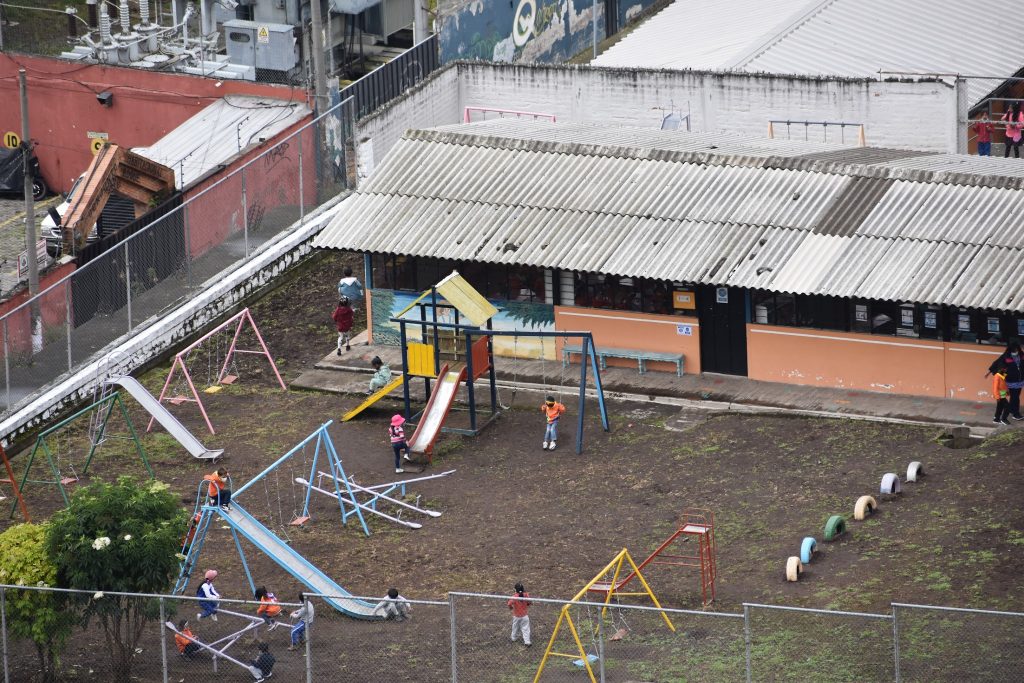
PART 2: PHYSICAL ASSESSMENT ONSITE
Moving forward into the onsite development work, the MICSEA team arrived in Quito to begin their research with FLACSO, AYRIWA and the local community of La Lucha De Los Pobres. As an initial step to strengthen the programme context, the class engaged in two days of lectures and workshops with the project stakeholders, including detailed sessions with professors Myriam Paredes and Sara Latorre at FLACSO.
This component of the workshop was then underpinned by a visit to the Barrio to validate the off-site perspectives made in step one, as well as to collect observational research at a neighbourhood scale. To perform these tasks, the project groups established new narratives to focus on the following research areas.
GROUP 1. GROUP 1. Urban orchards: Map the existing orchards as part of an open space system and connective network of the green infrastructure in the Barrio. Observe the productivity of each orchard and its relation to alternative food systems. Interrogate waste, recycling, and composting behaviours. Explore how bottom-up informal solutions (particularly those initiated by women) interact with food systems.
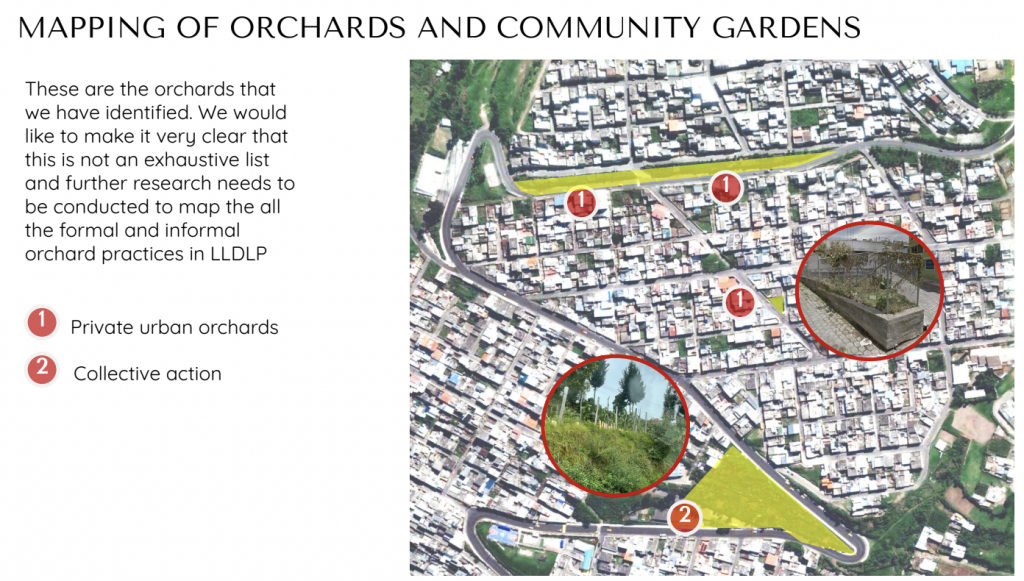
GROUP 2. Climate Risk Assessment: Investigate the issues associated within the ravine areas that pose existing risk, including flooding, heat increase, landslides, soil erosion etc. Observe what physical community-based initiatives and mitigation strategies are being implemented to better the creek and ravine regions. Explore how ravine areas are used and what connection they have with place making and surrounding areas.
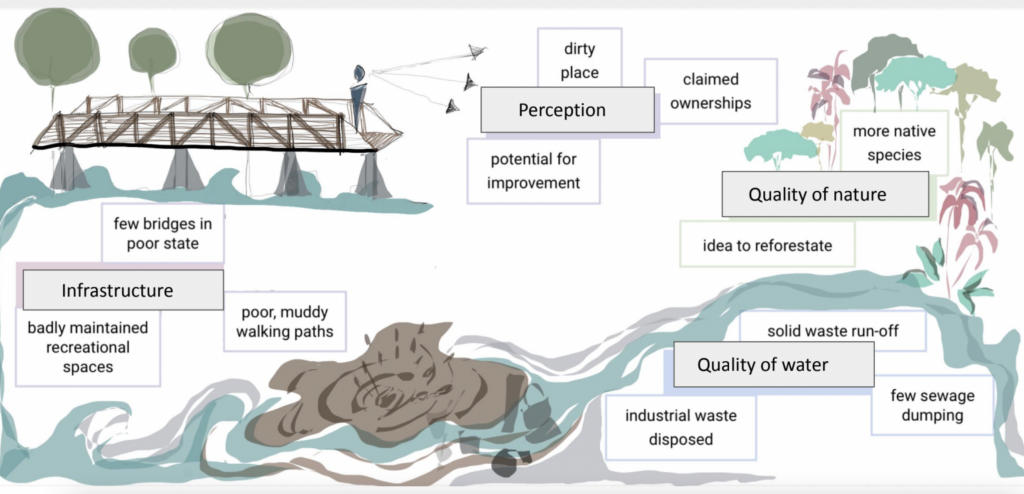
GROUP 3. Activities and Markets: Explore markets and neighbourhood regions advocating the local production of food. Observe relationships of informal and formal commercial activities. Analyse existing communal activities related to markets such as communal kitchens and culturally relevant alternative food systems.
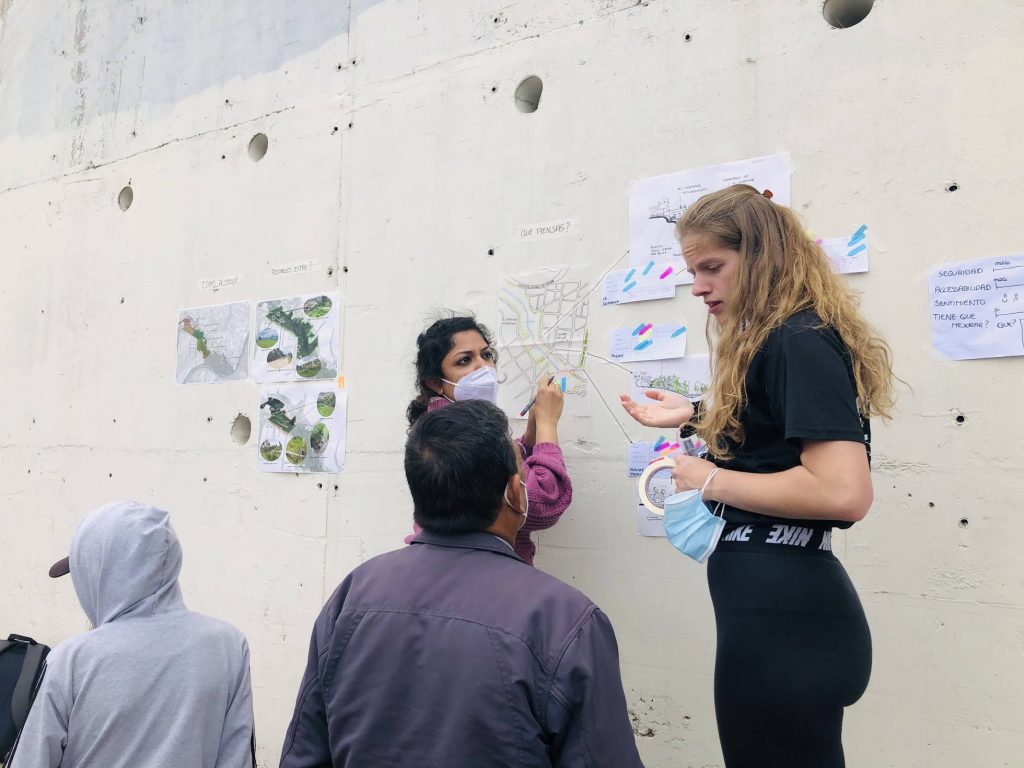
GROUP 4. Physical connectivity: Analyse the three different topographical levels of the Barrio. Investigate the perceived physical barriers of the neighbourhood. Map layers such as sanitation, water, lighting (electricity), social and physical infrastructure. Find strategic meeting points or public areas or voids between the three levels in order to enhance connectivity.
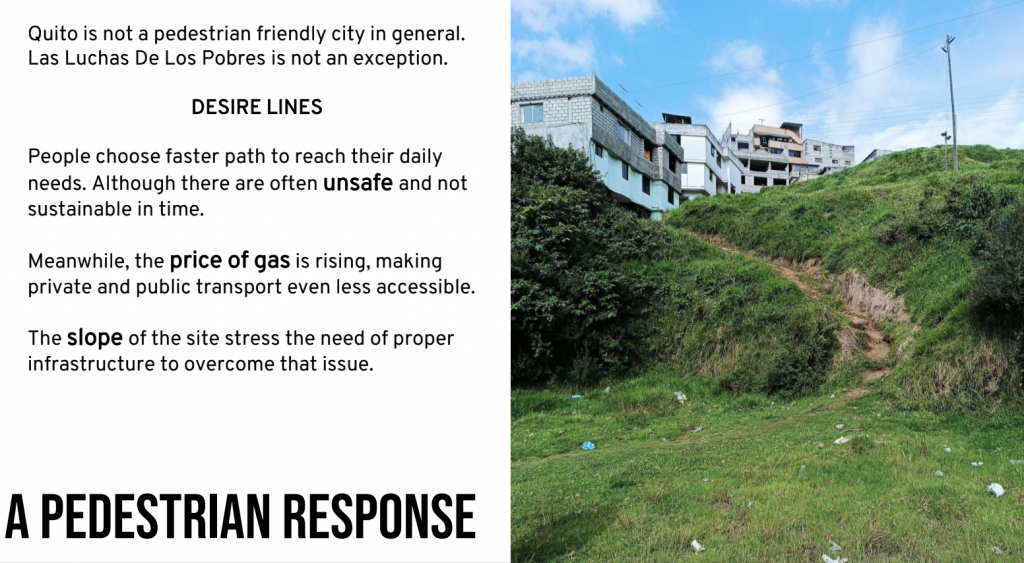
MICSEA Quito field trip 2022
During their time in the field, each MICSEA group collaborated with a local representative and faculty member from the programme. Fieldwork and research areas were identified as areas of significance from previous findings, as well as advice from the local guides and constituents. After this step, the students were given time to synthesise their findings and to use the developing perspectives to shape Step 3’s social approaches.
We are very happy with the work our students are developing with the support of FLACSO and AIRIWA. Read the following and final post with the following phase and outcomes of the student’s work in Part III

